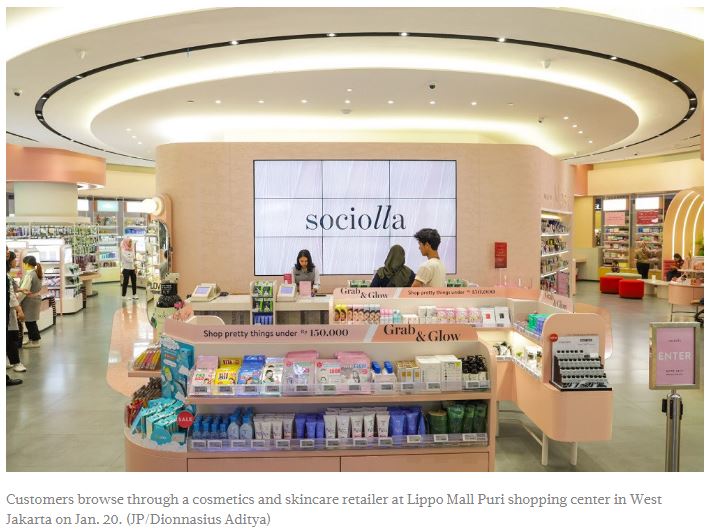Indonesia: Retail sales suffer big fall in October as recovery remains weak
Retail sales in Indonesia dropped significantly in October and are expected to drop further in November in another sign that the nation’s economic recovery is losing steam as people’s purchasing power remains sluggish as a result of the coronavirus pandemic.
According to a survey published by Bank Indonesia (BI) on Thursday, retail sales dropped 14.9 percent in October compared to the same month last year, the biggest fall since June and coming on the heels of an 8.7 percent fall in September.
The survey showed the sales of food, beverages and tobacco contracted in October after recording growth a month earlier, while sales of communication equipment dropped further.
“Respondents expect retail sales to drop over the next three months because of weakening purchasing power after the Christmas and year-end holiday,” the central bank said, adding that sales were expected to increase over the next six months ahead of Ramadan.
The survey estimated an even deeper contraction in November of 15.7 percent year-on-year (yoy) as consumers remain wary of the uncertainty surrounding the pandemic despite a projected monthly improvement driven by the rising sales of spare parts and accessories, as well as clothing.
Indonesia plunged into recession for the first time in two decades as the government struggled to contain the outbreak and its economic fallout.
The outbreak has paralyzed business activity as consumers have either preferred or have been required to stay at home to avoid contracting the coronavirus, resulting in layoffs and furloughs that hit purchasing power. Household spending, which accounts for more than half of the country’s gross domestic product (GDP), shrank 4.04 percent in the third quarter, deeper than the 3.49 percent contraction recorded for the whole economy.
Indonesia added nearly 100,000 virus cases in less than three weeks, the worst in Southeast Asia, recording more than 623,000 infections as of Monday with at least 18,000 fatalities, according to official data.
“The rise in virus cases over recent months hurt public confidence in the economy,” Institute for Development of Economics and Finance (Indef) executive director Tauhid Ahmad told The Jakarta Post on Friday. “This shows that the economic recovery will remain sluggish.”
“We are seeing a different impact of the pandemic on the lower-middle class and the upper-middle class, in which the former lost purchasing power while the latter cut back on spending,” Tauhid said. “The government’s stimulus should continue into 2021.”
Economists and businesspeople have warned that the recovery in consumer confidence in November remains fragile – despite hopes of a year-end holiday shopping spree – because of continuing uncertainty about how long the pandemic will last.
A survey by the central bank released on Tuesday showed that the consumer confidence index (IKK) rose to 92 in November, up significantly from 79 in October.
However, consumers remained generally pessimistic over economic conditions as an IKK value above 100 reflects general hopefulness, while a value below 100 signifies pessimism.
Although the economy has begun to recover, it remains well below pre-pandemic levels, as reflected by sluggish retail and vehicle sales, according to Indonesian Chamber of Commerce and Industry (Kadin) vice chairwoman Shinta Kamdani on Dec. 8.
Source: https://www.thejakartapost.com/news/2020/12/14/retail-sales-suffer-big-fall-in-october-as-recovery-remains-weak.html


 English
English




